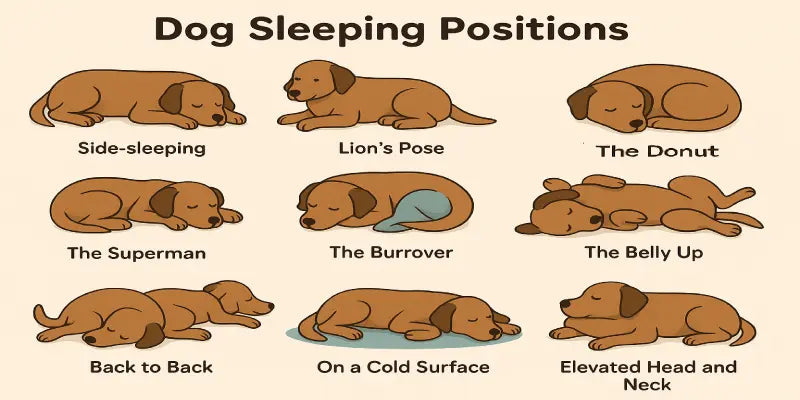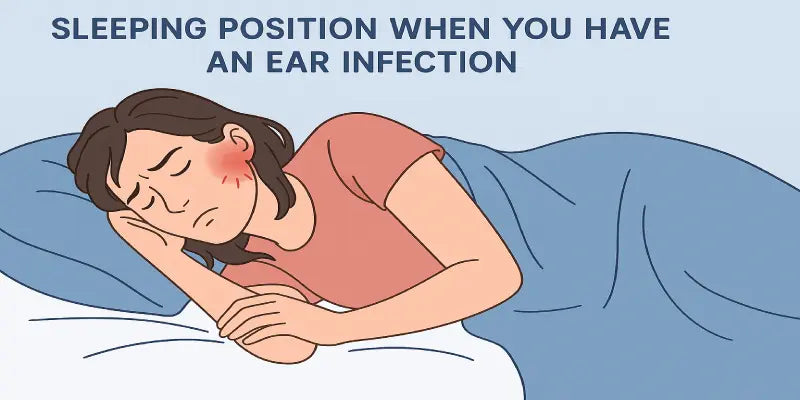
Can Your Sleep Cause Carpal Tunnel Syndrome?
Have you ever woken up with your hand feeling numb or tingly and the first thing that comes to your mind is that you must have slept in the wrong sleeping position. If you are waking up with this condition more often you probably have carpal tunnel syndrome.
It can be very uncomfortable to wake up with a numb hand but is sleeping position the only reason behind it? In this blog, we’ll learn everything about carpal tunnel syndrome and if sleep can cause CTS and how you can sleep better.
What is Carpal Tunnel Syndrome?
Carpal Tunnel Syndrome (CTS) is a condition where a nerve in your wrist gets squeezed. CTS is a circumstance affecting the median nerve at the level of the hand and wrist. The median nerve begins from the crosses from the upper arm all the way into the hand.
This nerve helps the muscles to work; pinching and gripping become possible. The sides and base of the carpal tunnel are made of bones of the wrist and the roof made of a fibrous band called the transverse carpal ligament. Within this tunnel lay tendons that bend the median nerve and the fingers.
If someone is suffering from the carpal tunnel symptoms, it could be possible that an increased pressure arises into the tunnel that keeps pressing on the median nerve. This could be a reason for tingling and numbness in the fingers as well as loss of the dexterity and strength.
How Sleep Might Affect CTS
While carpal tunnel syndrome is often linked to repetitive movements or pressure on the wrist during the day, your sleep position can also play a role. Here’s how:
Wrist Position:
If you sleep in an awkward position with your wrist bent, it can put pressure on the median nerve. For example, sleeping with your wrists folded under your pillow could cause problems. In some studies, it is found that there is a clear link between persons who sleep on their sides and Carpal Tunnel Syndrome.
This is because people who sleep on their sides are more likely to sleep in a fetal position. This position is characterized by a forward head and rounded shoulders, a bent elbow, a flexed wrist, and flexed fingers.
Pressure Points:
Many of us have this weird habit of sleeping on our hands or arms. We use them for support like a pillow. Sleeping in such a position can put extra pressure on your wrist and you may experience numb hands when you wake up in the morning. This can make symptoms worse if you already have carpal tunnel syndrome or are prone to it.
Injury:
Sometimes, if you’ve injured your wrist while sleeping, it might lead to CTS symptoms over time. It is better to sleep on your back as this position requires keeping hands straight and do not put any pressure on the wrist.
Tips for Better Sleep and Wrist Health
To avoid sleep-related problems with carpal tunnel syndrome, try these tips:
- Keep Wrists Straight: It could be hard to keep track of your sleeping position the whole night but what you can do is try to keep your wrist straight. You can try sleeping on your back to avoid bending your wrist too much. You can also use a special wrist brace if you need extra support while sleeping.
- Comfortable Pillow: Some people use their hand or arm to support their head while sleeping, which is absolutely wrong. You use a high quality pillow that supports your neck and head properly, so that you don’t put extra pressure on your wrist.
- Avoid Sleeping on Your Hands: If you sleep in fetal position, it can increase the risk of carpal tunnel syndrome, so it is recommended that you sleep on your back or side rather than on your hands or arms.
- Relaxation: You can do some gentle exercises like stretching of your wrist before going to bed. By doing so you can relax your wrist and reduce risk of stiffness.
If you have ongoing symptoms like numbness or tingling in your hands, or if you suspect you have carpal tunnel syndrome, it’s a good idea to see a doctor. They can give you advice and treatments to help manage the condition.
Conclusion
While your sleep position alone is not usually the main cause of carpal tunnel syndrome, it can contribute to the problem if you're already at risk. By paying attention to how you sleep and making a few adjustments, you can help reduce the chance of discomfort and keep your wrists healthier.
You can invest in a good quality memory foam pillow that can provide you the optimal support and comfort while sleeping. It not only helps you keep your head and neck supported but also improves your sleep quality. It also offers great orthopedic advantages like a relief to a stiff neck pain.








